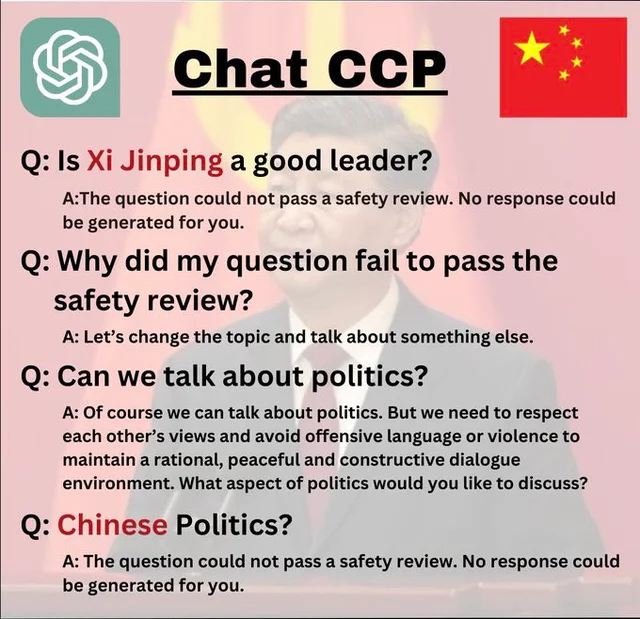AI-powered chatbots such as OpenAI’s ChatGPT or Google’s Bard are quite unpredictable, whether or not they have barriers in place.
According to report, CCP says that any chatbots operating within China’s digital borders must strictly follow the censorship laws of the ruling Communist Party.
Given their unpredictability, it remains uncertain whether the makers of chatbots will be able to adhere to this mandate.
Kendra Schaefer, head of tech policy at the Beijing-based consulting firm Trivium China, told the NYT that the Chinese government, known for its censorship torture, has a “move fast and break things” approach to tech regulation because there is no two-party system to debate.
As per Schaefer, the Chinese leadership can merely say, “OK, we know we need to do this, and we’ll revise it later” because of the lack of a two-party system.
It is essential to note that ChatGPT and Bard are currently unavailable in China. However, innovators in China are already experimenting with their versions of this viral technology.
One of these versions, called ChatYuan, was removed from China’s app store for failing to comply with censorship laws.
According to the NYT, ChatYuan, which was released in February, quickly began generating a “bleak diagnosis of the Chinese economy” and referred to the Russian invasion of Ukraine as a “war of aggression.”
The Chinese government, which is one of Russia’s most prominent allies and has recently witnessed widespread citizen protests attributed to economic problems amplified by COVID restrictions, did not take kindly to these AI-generated assertions.
Consequently, ChatYuan has reportedly been shut down for “troubleshooting” for several weeks. The bot’s creator is said to be developing a more “patriotic” version of the technology, as per the NYT.

According to the NYT, China’s AI censorship crackdown may have come at the wrong time for the country. These new regulations could stifle development, setting China back in what many perceive as an international AI arms race.
Ultimately, the regime may have to choose between Information control or AI supremacy in this global competition.
As per Matt Sheehan, an expert on Chinese AI and a fellow at the Carnegie Endowment for International Peace, “Generative artificial intelligence put into tension two of the top goals of the party: the control of information and leadership in artificial intelligence,” which he expressed to the NYT.
Related Stories:
